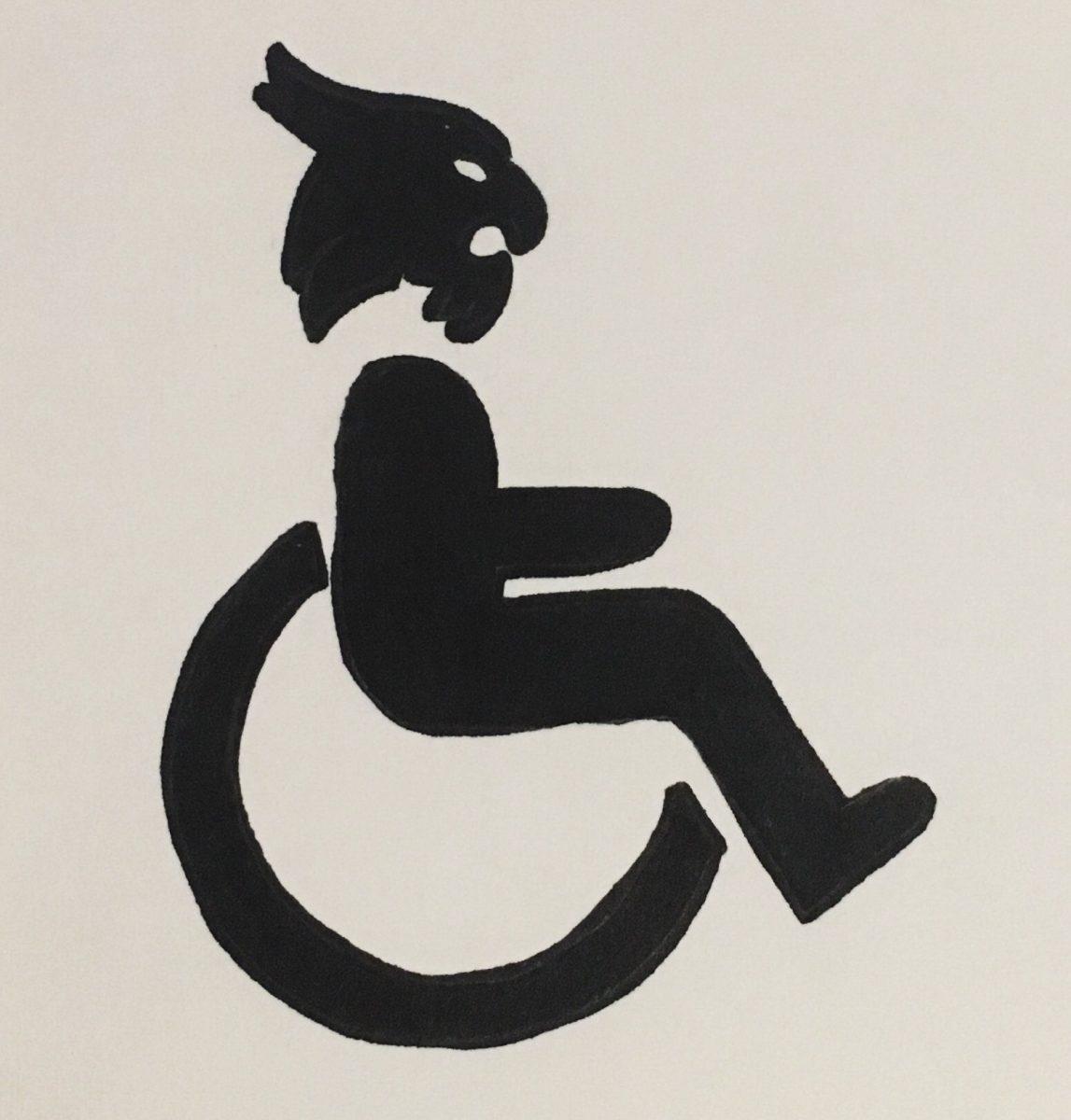Ableism, the discrimination against people with disabilities, is tangled among the roots of our society.
It is embedded in our language, which turns bodies into insults and equates the disabled with weakness, ignorance, and failure. It directs our desires, arbitrarily dictating what is to be considered beautiful and devaluing those who do not conform to often-unattainable standards. It goes so far as to exclude disabled people from earning a living. Today, as much as fifty-nine percent of the disabled population is unemployed.
This is a universal issue that permeates throughout the whole of the American experience, but we cannot allow its universality to obscure the ableism that exists in our immediate surroundings.
Given that Texas State is situated on top of a hill, its inaccessibility may seem self-evident. This apparent self-evidence is not, however, an excuse to ignore the problem. If anything, Texas State has even more of an obligation to ensure that its services are accessible because of the inaccessible space that its campus occupies.
Speaking to students on campus, the most common issue that was raised was a lack of knowledge about the services that Texas State offers. As Dakota Pennell, a student of psychology at Texas State put it, “the services are there, they just aren’t that ‘out there.”
Another student also noted the lack of awareness among the Texas State community regarding disability resources. Alyssa Weinstein, who has recently taken advantage of the Cats on the Go temporary disability service, noted that, while the service has made getting around Texas State much easier, registering for this service was unnecessarily difficult.
“There was lots of paperwork,” Weinstein explained. “It took a few days for it to process.” While navigating all the red tape, she had to make her way around campus unassisted, noting that “it was really a struggle.”
Texas State’s official statement on disability services only confirms the fact that the university places the burden of ensuring accommodation on the shoulders of their students.
The demands that students provide extensive medical documentation and outline “the specific impairments and barriers experienced by the student,” not only make ensuring accommodation difficult, they also implicitly make normative claims about who deserves accommodation. Such claims are dangerously exclusionary, and for a university like Texas State which has so much access to contemporary disability literature, it is absolutely unacceptable.
Accessibility is not something that students should have to struggle for and is something that each one of us deserves to an equal degree.
These issues are also intimately tied up with issues of race and gender. For example, students of color are much more likely to have disabilities go undiagnosed, and are criminalized for the same behaviors for which white students are given medical attention, while women with disabilities face inordinate struggles to ensure adequate housing.
In the wake of the racist and chauvinist propaganda that litters our campus with increasing regularity, President Trauth has responded by insisting on Texas State’s dedication to diversity, but tangible action taken by the administration to prevent future aggression against marginalized populations remains mysteriously absent.
Frankly, such empty rhetoric is so useless as to become offensive.
As The University Star’s editorial board so pointedly expressed in a recent polemic against our administration’s failure to adequately address these issues, it is time for students to shed their reliance on the institution– this is our campus, and each one of us deserves to benefit from our time here to the fullest extent.
An essential part of this progress will be revealing the often subtle exclusionary practices of our institution, an investigation that goes hand in hand with questioning which bodies exactly are included in the “student body.” This will require not only a comprehensive rethinking of how specific communities are left out of both our conversations and our spaces but also a sharp focus on how dominating misinterpretations of these communities are interwoven and interrelated.
The struggle for equality and access is a long and difficult one, but through organized determination and solidarity, I have faith in the power of students to enact currently inconceivable changes for the better. In the words of one of history’s staunchest advocates of people’s power, “we have a world to win.” Let’s get to it.
–Brad Waldraff is a philosophy senior
Students deserve equal campus access
November 25, 2017
Illustration by Chance Brown | Staff Illustrator
Donate to The University Star
Your donation will support the student journalists of Texas State University. Your contribution will allow us to purchase equipment and cover our annual website hosting costs.



















